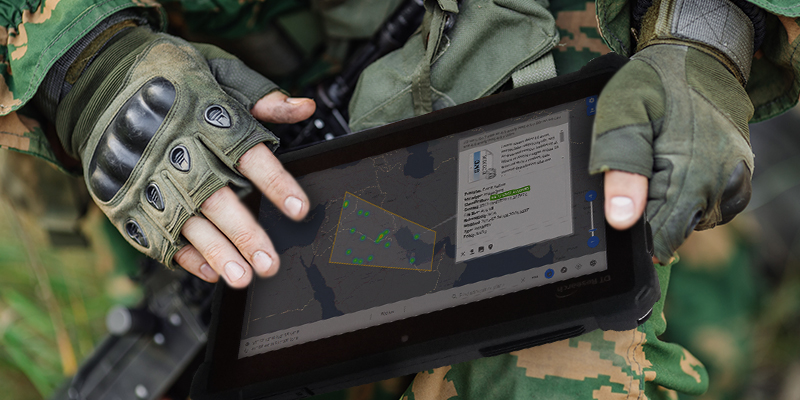In the ever-evolving world of manufacturing, the integration of rugged computing has become a pivotal element in enhancing both efficiency and reliability. As industries strive for increased productivity and reduced downtime, the importance of robust technological solutions cannot be overstated. Rugged computing for manufacturing offers a pathway to achieving these goals by providing durable and reliable computing systems that can withstand the harsh environments often encountered in industrial settings.

Understanding Rugged Computing
At its core, rugged computing refers to the use of computers and computing devices that are built to endure extreme conditions. This includes exposure to dust, moisture, extreme temperatures, and vibrations. These devices are designed with durability in mind, ensuring that they continue to function optimally even in the most challenging environments.
Importance in the Manufacturing Sector
The manufacturing sector is no stranger to harsh conditions. Factories often operate in environments that are not conducive to traditional computing equipment. This is where rugged computing comes into play. By utilizing devices that are built to withstand these conditions, manufacturers can ensure that their operations run smoothly without the constant worry of equipment failure.
Minimizing Downtime
One of the primary benefits of rugged computing is the reduction of downtime. In manufacturing, time is money. Any interruption in the production process can lead to significant financial losses. Rugged devices are less prone to failure, meaning that production lines can continue to operate without unexpected interruptions.
Improving Efficiency
By incorporating rugged computing solutions, manufacturers can also enhance the efficiency of their operations. These devices often come equipped with the latest technological advancements, allowing for seamless integration with other industrial systems. This streamlined approach leads to faster processing times and improved overall productivity.
Key Features of Rugged Computing Devices
When considering rugged computing solutions for manufacturing, it’s essential to understand the key features that set these devices apart from their traditional counterparts.
Durability
The hallmark of any rugged computing device is its durability. These devices are built to last, with reinforced casings and components that can withstand physical impact and environmental stressors.
Environmental Resistance
Rugged devices are designed to operate in a wide range of environmental conditions. Whether it’s extreme temperatures or dusty environments, these devices can maintain their functionality without compromise.
Advanced Connectivity
Modern rugged computing solutions offer advanced connectivity options, ensuring seamless communication between devices and systems. This is crucial in manufacturing settings where real-time data exchange is often required.
Applications in Manufacturing
The applications of rugged computing in manufacturing are vast and varied. From the production floor to quality control, these devices play a crucial role in ensuring the smooth operation of industrial processes.
Production Monitoring
Rugged devices are commonly used for monitoring production processes. Equipped with sensors and advanced software, these devices can provide real-time data on production metrics, allowing for immediate adjustments and optimizations.
Quality Control
In quality control, rugged computing devices are used to ensure that products meet the required standards. By providing accurate and reliable data, these devices help maintain the quality of manufactured goods.
Inventory Management
Effective inventory management is crucial in manufacturing. Rugged devices equipped with inventory management software can track stock levels, manage orders, and reduce the risk of overstocking or stockouts.
Future Trends in Rugged Computing for Manufacturing
As technology continues to advance, the future of rugged computing in manufacturing looks promising. Emerging trends are set to revolutionize the way manufacturers operate, providing even more robust and efficient solutions.
Integration with IoT
The integration of rugged computing with the Internet of Things (IoT) is a trend that is gaining traction. By connecting devices and systems, manufacturers can achieve greater automation and efficiency in their operations.
Advancements in AI
Artificial intelligence is poised to play a significant role in the future of rugged computing for manufacturing. AI-powered devices can analyze data and make informed decisions, further optimizing manufacturing processes.
Increased Customization
As the demand for specialized solutions grows, the ability to customize rugged computing devices to meet specific manufacturing needs will become increasingly important.
Conclusion
The adoption of rugged computing for manufacturing is a game-changer for the industry. By providing reliable and efficient solutions, these devices help manufacturers overcome the challenges posed by harsh environments. As technology continues to evolve, the future of rugged computing in manufacturing looks bright, promising even greater advancements in efficiency and reliability. For more insights on the benefits of rugged industrial electronics, you can read this article.

FAQs
What is rugged computing?
Rugged computing refers to the use of computers and devices designed to withstand harsh environmental conditions, ensuring reliability and durability in challenging settings.
Why is rugged computing important in manufacturing?
Rugged computing is crucial in manufacturing because it minimizes downtime, improves efficiency, and ensures reliable operation in harsh industrial environments.
What are the key features of rugged computing devices?
Key features of rugged computing devices include durability, environmental resistance, and advanced connectivity options, making them suitable for industrial applications.


